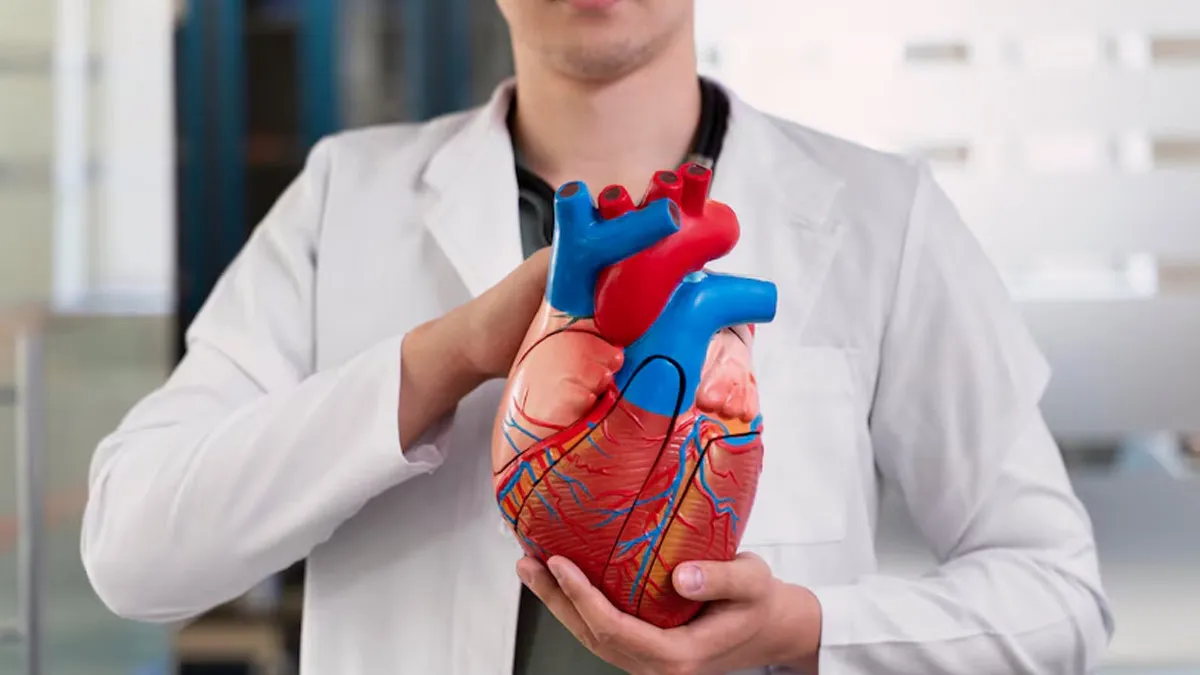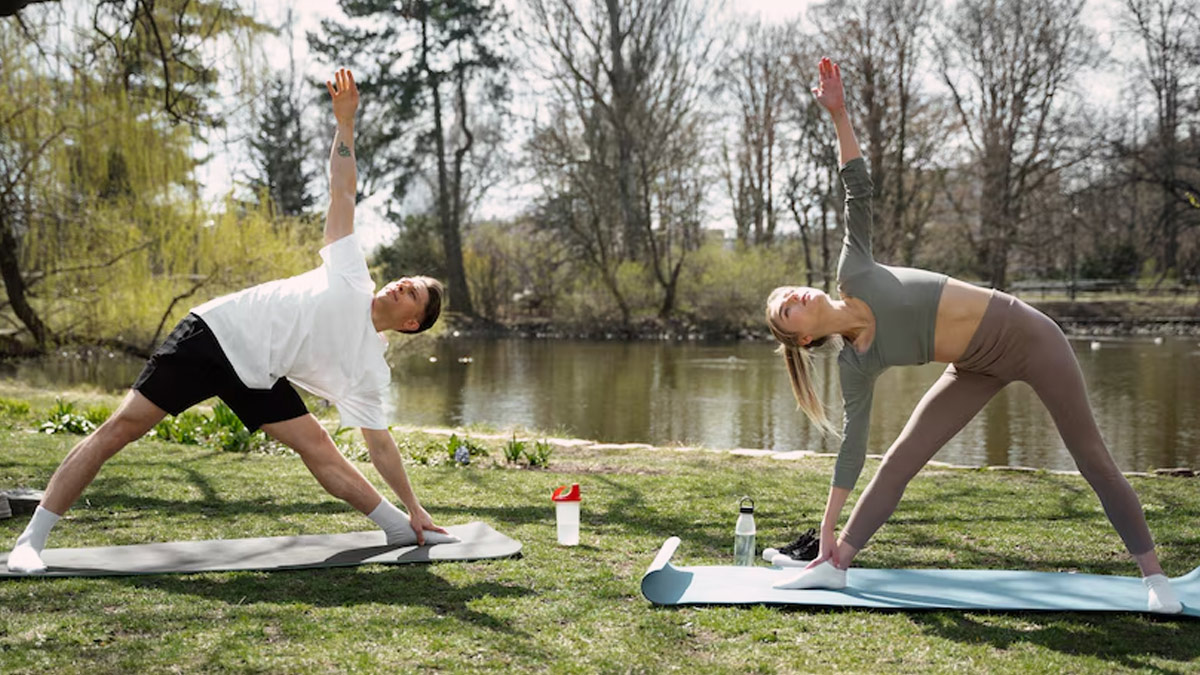
The heart relies on a network of veins to carry deoxygenated blood back to it for purification and circulation. When these veins become blocked due to factors such as blood clots, inflammation, or poor circulation, it can lead to serious heart conditions. Unlike arterial blockages that result from plaque buildup, venous blockages can cause increased pressure, swelling, and a lack of proper blood return, putting strain on the heart. This condition, known as coronary vein disease or venous insufficiency, often develops gradually and may go unnoticed until symptoms become severe.
Table of Content:-
To understand the signs of blocked heart veins, OnlyMyHealth team spoke to Dr Swati Darade, Senior Medical Officer, AYUSH.
She explains, "A buildup of fat, cholesterol, and other substances in and on the walls of veins causes blockages in these vessels, leading to reduced blood flow to the heart muscle. This often develops over many years."
Recognising the warning signs of blocked veins early can help in preventing severe heart complications.
Warning Signs of Blocked Heart Veins

Blocked coronary veins may not show symptoms immediately, but as the condition worsens, several warning signs appear, including:
- Chest Pain (Angina): A squeezing, pressure-like pain in the middle or left side of the chest. It often worsens with physical activity or emotional stress.
- Pain Spreading to Other Areas: Discomfort may radiate to the arms, shoulders, back, neck, jaw, or upper abdomen.
- Shortness of Breath: Difficulty in breathing even with mild exertion.
- Fatigue: Feeling extremely tired without any clear reason.
- Heartburn or Indigestion: A burning sensation in the chest that is sometimes mistaken for gastric issues.
- Nausea and Vomiting: Feeling sick or uneasy in the stomach.
- Cold Sweats: Unexplained sweating, particularly in stressful situations.
- Sudden Dizziness or Light-headedness: Feeling faint, especially when standing up quickly.
Dr Swati Darade stresses the importance of recognising these symptoms early, saying,
"Activity or strong emotions can trigger chest pain, which is commonly labelled as angina. If left untreated, this condition can lead to heart attacks or severe complications."
Also read: Can Yoga Help Reduce The Chances Of Heart Disease? Expert Tells
Risk Factors for Blocked Veins

Certain factors increase the likelihood of developing vein blockages. These include:
- Ageing: The risk of vein damage increases with age.
- Gender: Men are at higher risk, but postmenopausal women are also vulnerable.
- Family History: Genetic predisposition plays a significant role.
- Smoking and Alcohol: Both contribute to vein damage and increased plaque buildup.
- High Blood Pressure: Uncontrolled hypertension hardens and narrows the veins.
- High Cholesterol Levels: Excess LDL (bad cholesterol) leads to plaque accumulation.
- Diabetes: Elevated blood sugar damages blood vessels over time.
- Obesity: Being overweight increases strain on the heart.
- Chronic Kidney Disease: Poor kidney function affects heart health.
- Lack of Exercise: Sedentary lifestyles contribute to poor cardiovascular health.
- Stress: Chronic stress and anxiety impact heart function.
- Unhealthy Diet: Diets high in saturated fats, trans fats, salt, and sugar increase heart disease risk.
- Sleep Imbalance: Both too little and excessive sleep can be linked to heart issues.
Dr Swati Darade highlights the significance of prevention, stating, "Risk factors for blockages in veins are of great importance to keep our heart free from failure and diseases. Lifestyle modifications can significantly reduce these risks."
Ways to Manage and Prevent Heart Blockages

Making simple yet effective lifestyle changes can prevent and manage heart blockages:
- Healthy Diet: Consume plenty of fruits, vegetables, whole grains, and lean proteins.
- Regular Physical Activity: Engage in at least 30 minutes of moderate exercise daily.
- Maintain a Healthy Weight: Avoid obesity through proper diet and activity.
- Quit Smoking and Limit Alcohol: Reducing these habits improves heart function.
- Manage Stress: Practice yoga, pranayama (breathing exercises), and meditation.
- Monitor Key Health Indicators: Regularly check blood pressure, blood sugar, and cholesterol levels.
Also read: Expert Unveils Uncommon Symptoms of Clogged Arteries You Should Know
Ayurvedic Perspective on Heart Health
In Ayurveda, the heart is referred to as Hridaya, derived from three words:
- Hri (Harana) – Collection of Rasa Rakta (nutrients and blood) from the body.
- Da (Dana) – Distribution of Rasa Rakta to tissues.
- Ya (Ayana) – Expansion and contraction movements of the heart.
According to Charaka Samhita, causes of heart disease (Hridroga) include excessive physical exertion, stress, improper digestion (Ama), and suppression of natural urges like vomiting.
Ayurvedic Treatment for Heart Blockages

Ayurveda recommends herbs to improve heart health and manage blockages. Some beneficial herbs include:
- Hingu (Asafoetida) – Improves circulation
- Amalaki (Indian Gooseberry) – Reduces cholesterol
- Guduchi (Tinospora Cordifolia) – Strengthens immunity
- Draksha (Grapes) – Supports heart function
- Triphala and Trikatu – Helps in detoxifying the body
- Yava (Barley) – Lowers cholesterol
These herbs are used in various forms such as powders, juices, or decoctions to balance doshas and support heart health.
Conclusion
Heart blockages develop over time but can be managed with the right approach. Recognising the warning signs early, maintaining a healthy lifestyle, and integrating Ayurvedic principles can help prevent severe complications. As Dr Swati Darade advises, "A simple way to manage heart blockage is lifestyle modification, eating a balanced diet, staying physically active, and managing stress are key to heart health." If you experience any symptoms of heart disease, seek medical attention immediately. A proactive approach to heart health can significantly reduce the risk of severe conditions and improve overall well-being.
Also watch this video
How we keep this article up to date:
We work with experts and keep a close eye on the latest in health and wellness. Whenever there is a new research or helpful information, we update our articles with accurate and useful advice.
Current Version
